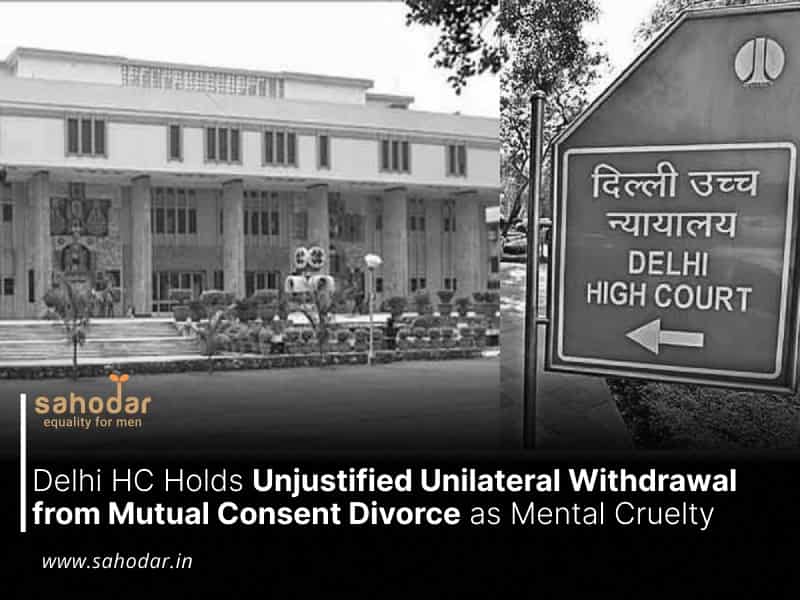The Delhi High Court has determined that the act of unilaterally withdrawing from a divorce by mutual consent, without any justifiable grounds, amounts to mental cruelty. This ruling emerged from an appeal under Section 19 of the Family Courts Act, 1984, filed by the wife against a decree allowing divorce on grounds of cruelty, as granted by the Family Court. The husband initiated the divorce proceedings under Section 13(1)(ia) of the Hindu Marriage Act, 1955 (HMA).
A Division Bench, presided over by Justice Suresh Kumar Kait and Justice Neena Bansal Krishna, underscored the significance of the appellant’s behaviour. The appellant, leading the respondent to believe that their disputes were nearing resolution and subsequently withdrawing from the attempted settlement, was deemed capable of causing disquiet, cruelty, and uncertainty in the respondent’s mind. The Court observed that the conflict between the parties lacked justifiable grounds and was driven by a war of egos fueled by a desire for vengeance against the spouse. Consequently, the act of unilaterally withdrawing from divorce by mutual consent was deemed a form of cruelty.
The Bench further took note of the wife’s actions, which included filing false criminal cases against the husband and his family and pursuing appeals in a vexatious manner—actions that were considered additional elements of cruelty.
Senior Advocate Raman Kapur represented the appellant/wife, while Advocate Amarjit Singh Bedi represented the respondent/husband.
Background:
The marital union endured a mere 13 months, culminating in separation in 2003. The husband asserted that disturbances arose in the family shortly after the marriage, leading to their separate living arrangements. Despite attempts to settle into matrimonial life, the wife exhibited a non-adjusting attitude, instigating conflicts over trivial matters. Instances of her threats regarding conceiving a child from someone else and disrespectful behaviour towards the husband’s family were cited.
In its deliberation, the High Court considered various incidents collectively, concluding that the wife’s non-adjusting attitude and baseless allegations of adultery amounted to mental cruelty. The Court highlighted the appellant’s involvement in property litigation against the husband’s aged grandmother, coupled with prolonged legal battles that inflicted suffering upon the husband and his family due to groundless allegations.
Additionally, the Court emphasised that despite the wife’s initial agreement to mutual consent divorce and receipt of a partial payment, she unilaterally withdrew her consent and returned the Demand Draft. Considering these factors, the High Court dismissed the appeal.

